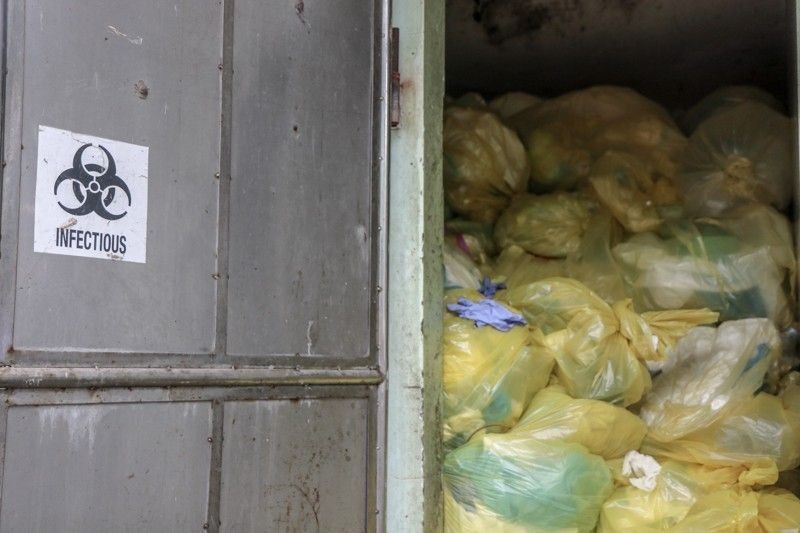Healthcare sector urged to 'take up leadership' in managing medical waste

MANILA, Philippines — Advocates urged the medical sector to reduce their reliance on single-use plastic and promote sustainable alternatives as a crucial step in addressing the healthcare plastic crisis.
The healthcare sector has traditionally relied on plastic materials due to their affordability, durability and cost-effectiveness.
However, the high volume of single-use plastic materials and packagings contributes significantly to plastic pollution. The COVID-19 pandemic exacerbated the production, trade and use of single-use plastics in healthcare settings.
Plastic also harms human health and the environment, and contributes to climate change at each stage of its life cycle, environmentalists said.
“We see the need for the healthcare sector to take up leadership in the entire issue of healthcare waste, not only hospitals but in the whole industry or sector itself and in the community,” Ramon San Pascual, executive director of Healthcare Without Harm Southeast Asia, said on the sidelines of a policy forum on July 6.
“We should be able to attach the issue of health to the very way we manage our healthcare waste,” he added.
In its policy paper, HCWH Southeast Asia called on healthcare institutions to reduce and redesign healthcare plastic, demand transparency about the chemical compositions of plastic, and ban what they call false solutions to plastic pollution such as chemical recycling and waste-to-energy technologies.
HCWH Southeast Asia urged healthcare professionals to actively advocate for sustainable solutions.
One of the model hospitals is St. Paul’s Hospital of Iloilo. The facility was able to reduce the volume of medical waste generated in the facility through the use of protective gear made from taffeta cloth, which can be washed and safely reused.
Waste management is a public health service
San Pascual said the Department of Health has a “greater acknowledgment” now of the healthcare waste problem.
“There is more engagement now. They are more responsive to the issue of plastics generated from hospitals, especially during the COVID-19 pandemic, to the need to see the whole plastic waste issue not only as an environmental but as a climate issue,” San Pascual said.
“Hospitals are also trying to cope up. ‘Cope’ is the term rather than move ahead. But efforts are there,” he added.
In December 2022, the DOH said it was collaborating with the Chinese government and the United Nations Development Programme to improve the management of medical waste in the country. According to the health department, the project recognizes that effective medical waste management is an essential public health service.
But the lack of awareness among medical professionals is one of the main challenges that healthcare facilities face when moving away from single-use plastic, San Pascual stressed.
“There’s a seeming lack of appreciation on [the need] to put the issue of healthcare waste in front of hospital operations. That can only be addressed by constant training and capacity building of people,” he said.
- Latest






























